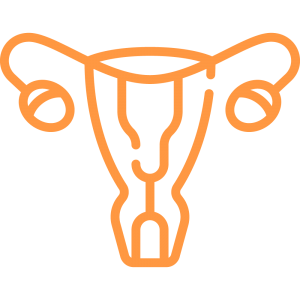Oocyte Vitrification
What is Oocyte Vitrification?
This technique allows a woman to preserve her fertility when she is at a fertile age and allows her to choose the most opportune moment for her eggs to be fertilized in the future, with the maximum guarantees of success, since vitrification allows you to keep your eggs in perfect condition, regardless of the time that passes.
Indications
La vitrificación de ovocitos está indicada en los siguientes casos:
Female fertility preservation.
Normally this is the average age that a woman makes her first appointment at a fertility clinic. Age can therefore be one of the main causes of infertility nowadays.
This technique is indicated for women who either do not have a partner or simply wish to delay motherhood, with the best guarantees of success in the future.
Oncology patients undergoing medical treatment.
Cancer or non-cancer patients who are undergoing a medical treatment that may be harmful to their oocytes.
Endometriosis patients.
Endometriosis patients who want to preserve their fertility due to the effect that this disease can have on their ovarian reserve.
Poor responders.
For ethical, religious or moral reasons.
The results
The survival of the oocytes using this technology in women between 30 and 35 years of age is greater than 95%.
The pregnancy rates achieved are the same as those obtained by using fresh oocytes in an in-vitro fertilization cycle, which will fundamentally depend on the age of the woman at the time of vitrification.
%
The survival of the oocytes
Technique

Once the follicles reach the appropriate number and size, a hormone called HCG is administered to complete the maturation of the eggs. Approximately 36 hours after administering the HCG, the mature eggs can be aspirated from the ovary.

This procedure consists of the aspiration of the mature oocytes using ultrasound guidance and administrating a gentle sedation to the patient so that she does not feel any type of discomfort. This minor procedure usually takes about 15 minutes.
On the day of this procedure it is recommended not to carry out activities in which you need to be fully alert, such as driving, or activities that require a lot of effort, even though you may feel perfectly well, it is advisable to just relax and take it easy.

This is a cellular solidification process done at low temperatures (-196ºC). The temperatures are reached very quickly to prevent the formation of crystals. Once vitrified the ovules are stored inside straws by means of a closed system that prevents their contact with the liquid nitrogen in which they are immersed in for their conservation, thus ensuring the highest safety conditions.
Questions and answers about Oocyte vitrification.
If you would like more information about our treatments, we are always available to help and answer any of your questions.
When is the best age to vitrify my eggs?
As of this age, the ovarian reserve and the quality of the ovules diminish, for this reason and in order to obtain the best chances of success it is recommended to vitrify them before the age of 35.
Will my fertility be affected if, after vitrification, I want to be a mother naturally?
How long can I keep my vitrified eggs?
What kind of side effects can ovarian vitrification cause?
Are there any side effects for the future baby?
What is the survival rate of the oocytes after vitrification?
What guarantees do I have that my frozen eggs will be useful in the future?
What happens when I decide it's time to become a mother?
Up to what age will I be able to use my oocytes?
Treatment Price
Patients who come to Fertia are informed from the very first moment with complete transparency about the cost of our treatments.
If you have any questions, consult our team.
Fertility Preservation |
|
Treatment includes: First visit. Ultrasound. Oocytes retrieval. Oocytes vitrification. |
€ 2,700 |